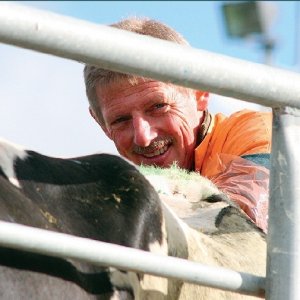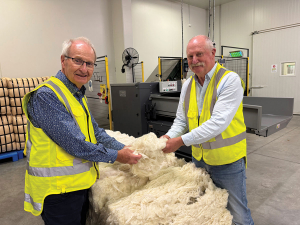A "global dairy crisis" could be good for New Zealand dairy farmers, says Federated Farmers.
This year is shaping up as a bumpy one for the international dairy industry, with the worst US drought since Ronald Reagan was president and thousands of European dairy farmers taking to the streets in protest.
"We seem to be staring down the barrel of a global dairy crisis, which could benefit New Zealand's dairy farmers," says Willy Leferink, Federated Farmers dairy chairperson.
"An act of nature in the United States and subsidies elsewhere are putting dairy farmers under the most unimaginable pressure. WeatherWatch's Philip Duncan says half of the continental United States is now in drought.
"The world's largest corn crop is withering and that's a key marker because US dairy and beef production is grain dependent. US grain prices have climbed a quarter in the past three weeks and corn is following suit.
"The US is also the world's third largest dairy exporter right behind ourselves and the European Union.
"Before drought struck, US dairy production growth was slowing but the brakes will be fully on now. I've heard estimates the United States Department of Agriculture's modest 0.2% growth forecast may turn into a 2% fall.
"This is important because Fonterra Cooperative Group's opening season milk price forecast of $3.85 per kilogram of milksolids (kg/MS), is down on last season's opening of $4.40 kg/MS.
"While the season just ended may return Fonterra's farmers $6.05 kg/MS for their milk, it comes from a season right out of the box. Westland Milk Products has also lowered its milksolids payout range for the season just ended, to between $6.00 and $6.20 kg/MS.
"It is fair to say the 2012-13 season is looking tough everywhere plus we have a monkey on our back called the high Kiwi dollar.
"In the United Kingdom, thousands of dairy farmers have marched in London to protest milk payouts lower than the cost of production. That's due to a vicious supermarket price war.
"Hundreds of dairy farmers from Italy, Germany, Ireland and France have gone further, spraying milk outside the European Parliament. While it tells me they have no RMA-type legislation, it shows a sense of frustration in a world that needs this food.
"Here, New Zealand milk is unsubsidised and most of it is sold through cooperatives for export; we are not at the mercy of supermarkets or domestic processors.
"Local retail dairy prices are directly tied to the international market place and while they rode the commodities wave up, that same wave means retail prices have come down.
"In the space of 12-months, fresh milk has fallen 8% while cheddar is down 16% and butter has dropped 24%. We just hope what's good for consumers in the short term won't turn sour for 'NZ Inc' longer term," Leferink concluded.


















